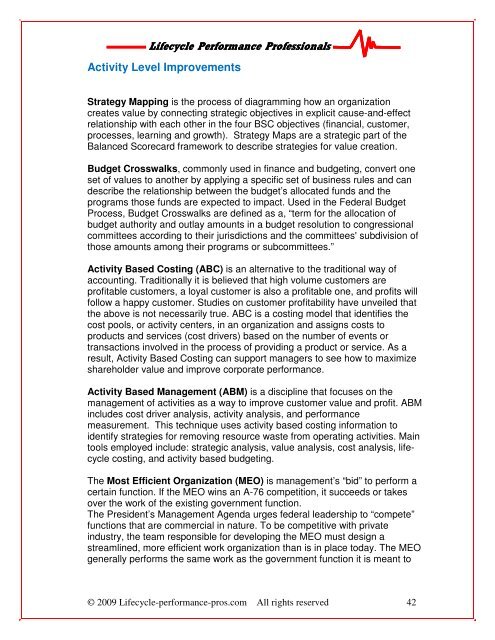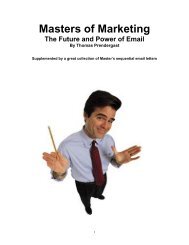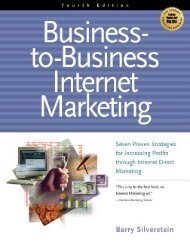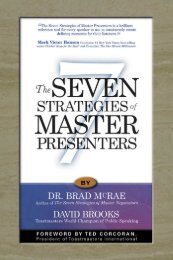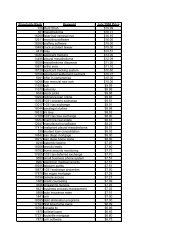Download the Performance Management Fundamentals Guide
Download the Performance Management Fundamentals Guide
Download the Performance Management Fundamentals Guide
Create successful ePaper yourself
Turn your PDF publications into a flip-book with our unique Google optimized e-Paper software.
Lifecycle Lifecycle <strong>Performance</strong> <strong>Performance</strong> Professionals<br />
Professionals<br />
Activity Level Improvements<br />
Strategy Mapping is <strong>the</strong> process of diagramming how an organization<br />
creates value by connecting strategic objectives in explicit cause-and-effect<br />
relationship with each o<strong>the</strong>r in <strong>the</strong> four BSC objectives (financial, customer,<br />
processes, learning and growth). Strategy Maps are a strategic part of <strong>the</strong><br />
Balanced Scorecard framework to describe strategies for value creation.<br />
Budget Crosswalks, commonly used in finance and budgeting, convert one<br />
set of values to ano<strong>the</strong>r by applying a specific set of business rules and can<br />
describe <strong>the</strong> relationship between <strong>the</strong> budget’s allocated funds and <strong>the</strong><br />
programs those funds are expected to impact. Used in <strong>the</strong> Federal Budget<br />
Process, Budget Crosswalks are defined as a, “term for <strong>the</strong> allocation of<br />
budget authority and outlay amounts in a budget resolution to congressional<br />
committees according to <strong>the</strong>ir jurisdictions and <strong>the</strong> committees' subdivision of<br />
those amounts among <strong>the</strong>ir programs or subcommittees.”<br />
Activity Based Costing (ABC) is an alternative to <strong>the</strong> traditional way of<br />
accounting. Traditionally it is believed that high volume customers are<br />
profitable customers, a loyal customer is also a profitable one, and profits will<br />
follow a happy customer. Studies on customer profitability have unveiled that<br />
<strong>the</strong> above is not necessarily true. ABC is a costing model that identifies <strong>the</strong><br />
cost pools, or activity centers, in an organization and assigns costs to<br />
products and services (cost drivers) based on <strong>the</strong> number of events or<br />
transactions involved in <strong>the</strong> process of providing a product or service. As a<br />
result, Activity Based Costing can support managers to see how to maximize<br />
shareholder value and improve corporate performance.<br />
Activity Based <strong>Management</strong> (ABM) is a discipline that focuses on <strong>the</strong><br />
management of activities as a way to improve customer value and profit. ABM<br />
includes cost driver analysis, activity analysis, and performance<br />
measurement. This technique uses activity based costing information to<br />
identify strategies for removing resource waste from operating activities. Main<br />
tools employed include: strategic analysis, value analysis, cost analysis, lifecycle<br />
costing, and activity based budgeting.<br />
The Most Efficient Organization (MEO) is management’s “bid” to perform a<br />
certain function. If <strong>the</strong> MEO wins an A-76 competition, it succeeds or takes<br />
over <strong>the</strong> work of <strong>the</strong> existing government function.<br />
The President’s <strong>Management</strong> Agenda urges federal leadership to “compete”<br />
functions that are commercial in nature. To be competitive with private<br />
industry, <strong>the</strong> team responsible for developing <strong>the</strong> MEO must design a<br />
streamlined, more efficient work organization than is in place today. The MEO<br />
generally performs <strong>the</strong> same work as <strong>the</strong> government function it is meant to<br />
© 2009 Lifecycle-performance-pros.com All rights reserved 42


